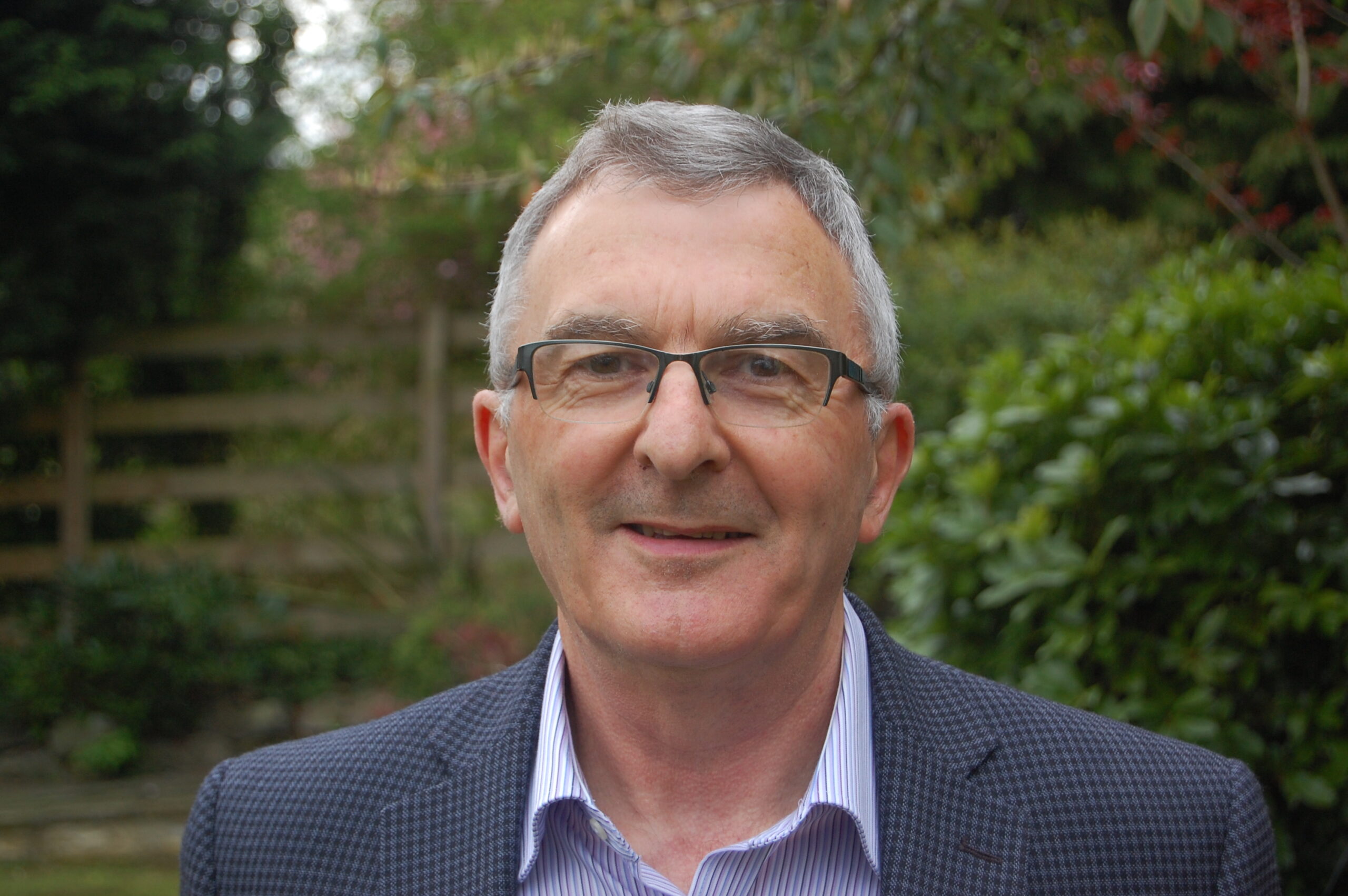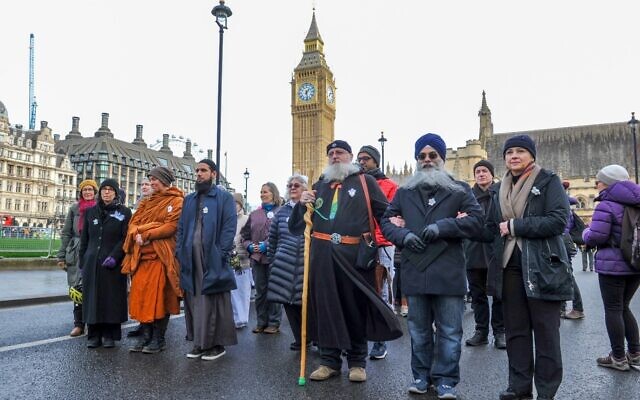OPINION: Does Gaza represent an existential crisis for interfaith relations?
After 7 October, where now for precious relationships between Jewish and Muslim communities, asks church minister David Kibble
Keir Starmer, commenting recently on current interfaith relations, said, “I think we have to be honest about where we are at the moment which is a much worse position than I think we were in.”
He said that “what I thought went very deep across the country with interfaith work wasn’t as deep as I thought.” Board of Deputies president Marie van der Zyl has said that some interfaith relations have become ‘strained and under challenge.’
From a different perspective Chief Rabbi Ephraim Mirvis has suggested that members of the Jewish community need to be more assertive about the place of Israel in interfaith situations. “Israel is not just the geopolitical centre of Jewish peoplehood, it is the heart of our religion… We need to be brave enough, let’s discuss Israel!”
Israel’s actions in Gaza have certainly led to a cooling of some interfaith relations, particularly between Jewish and Muslim communities. But is this inevitable?
Interfaith relations operate at a number of levels. What we might call a lower level is where members of synagogues, churches and mosques hear about one another in the media.
They watch news on television or on the internet about one another and about the conflict in Gaza. At a second level, members of different faith communities may meet one another during visits to one another’s places of worship; perhaps they visit during a mitzvah day in a synagogue or eat an iftar meal in a mosque during Ramadan.

At a deeper level, students might meet students of other faiths for meals. This is what some do in the homes of members of St George’s church in Leeds. Here they may talk to one another about their faith and faith communities in a supportive environment – alongside football, university courses and other matters of interest!
At a deeper level still, small groups of members of different faith communities may get together on a regular basis to undertake social projects. Finally, there is another level where, for example, Jews and others might meet to discuss the issue of Israel and Palestine in some depth.
This is something we have done twice at Saint George’s. One round of discussion was undertaken over four sessions on Sunday afternoons whilst another smaller group of seven or eight looked at the topic over three summers.
At each of these levels interfaith relations will have a different flavour and will have more or less depth. In the lower dimensions of interfaith relations there may be little or no conversations between individual members of the different faith communities. At the top end friendships, even deep friendships, may be made.
How members of different faith communities relate to one another, then, will be different at the different levels. It is where relationships are at a higher level that they will be more able to continue in times of crisis, such as at the present time. At lower levels, where acquaintances are made rather than relationships forged, interfaith relations will be at their weakest; there may consequently be some form of disruption or even breakdown.
I see no problem in accepting the Chief Rabbi’s suggestion that members of the Jewish community should not be afraid to raise the topic of Israel. How one does this, however, is crucial.
Many, perhaps even most, non-Jews will have little background knowledge of Israel and Palestine and their history. Bearing in mind that one should always start from where people are, much discussion will therefore need to be of a very basic nature.
Only at the higher levels of interfaith relationships should more in depth discussion take place. Even then, it should nearly always be in the form of ‘my view is’ or ‘in the Jewish community we believe….’ The stronger the friendships, the more strident and assertive one can be. And, of course, that will apply to both sides!
We must avoid, then, making blanket statements about interfaith relations. Interfaith activities are manifold and embrace a wide variety of relationships. Where there are political tensions there may be a weakening of, and in some cases a pause in, those relationships.
Events in Gaza will no doubt impact interfaith relations. But how they impact them will depend on how deep personal relationships are. If we wish to be able to work through crises together we will only be able to do so where we have strong relationships. The message is obvious.
- David Kibble is a retired deputy headteacher from Huntington School in York and a licensed lay minister at St George’s Church in Leeds.

Thank you for helping to make Jewish News the leading source of news and opinion for the UK Jewish community. Today we're asking for your invaluable help to continue putting our community first in everything we do.
For as little as £5 a month you can help sustain the vital work we do in celebrating and standing up for Jewish life in Britain.
Jewish News holds our community together and keeps us connected. Like a synagogue, it’s where people turn to feel part of something bigger. It also proudly shows the rest of Britain the vibrancy and rich culture of modern Jewish life.
You can make a quick and easy one-off or monthly contribution of £5, £10, £20 or any other sum you’re comfortable with.
100% of your donation will help us continue celebrating our community, in all its dynamic diversity...
Engaging
Being a community platform means so much more than producing a newspaper and website. One of our proudest roles is media partnering with our invaluable charities to amplify the outstanding work they do to help us all.
Celebrating
There’s no shortage of oys in the world but Jewish News takes every opportunity to celebrate the joys too, through projects like Night of Heroes, 40 Under 40 and other compelling countdowns that make the community kvell with pride.
Pioneering
In the first collaboration between media outlets from different faiths, Jewish News worked with British Muslim TV and Church Times to produce a list of young activists leading the way on interfaith understanding.
Campaigning
Royal Mail issued a stamp honouring Holocaust hero Sir Nicholas Winton after a Jewish News campaign attracted more than 100,000 backers. Jewish Newsalso produces special editions of the paper highlighting pressing issues including mental health and Holocaust remembrance.
Easy access
In an age when news is readily accessible, Jewish News provides high-quality content free online and offline, removing any financial barriers to connecting people.
Voice of our community to wider society
The Jewish News team regularly appears on TV, radio and on the pages of the national press to comment on stories about the Jewish community. Easy access to the paper on the streets of London also means Jewish News provides an invaluable window into the community for the country at large.
We hope you agree all this is worth preserving.






















